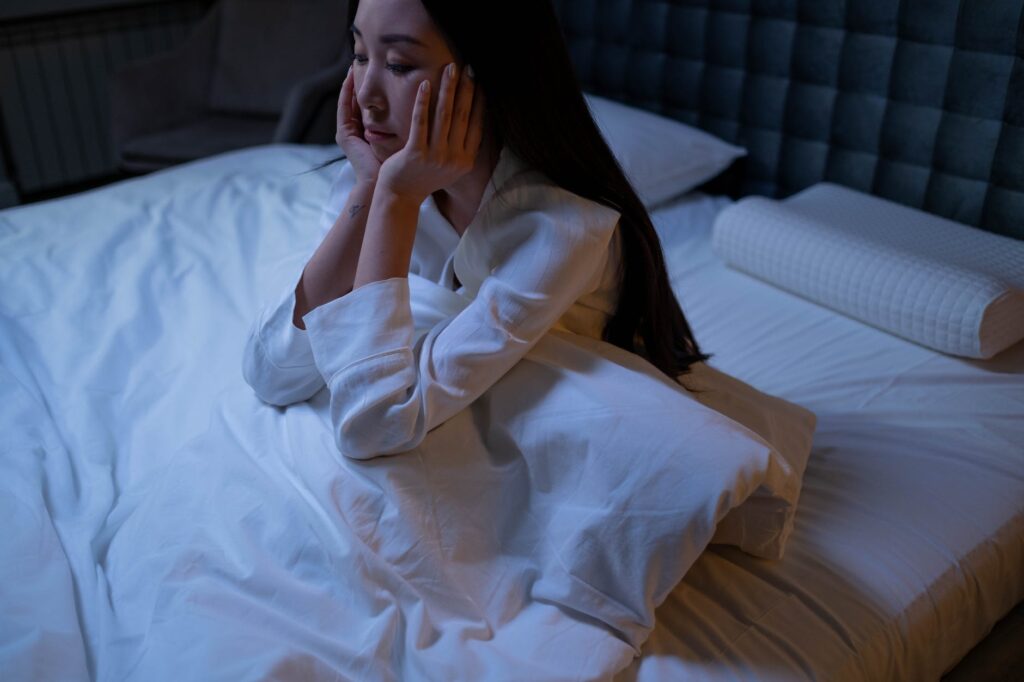A teacher wrote this note in one of her trainees’ records; “Always late in class. Appears inattentive throughout discussions. To ask regarding his scenario.” One day after class, the instructor consulted with this trainee to ask regarding his condition. She was expecting that her student might relate some issues with his household or financially that disrupts his academic performance.
The teacher was amazed, however, to discover that the reason for her student’s consistent tardiness and bad performance in school is lack of sleep and difficulty in sleeping. She thought that her student was just comprising a lame excuse and reprimanded him severely. Later that week, when she delicately associated this to her pal who happens to be a medical professional, he told her that her student might actually have a severe medical issue called insomnia.
Sleeping disorders is defined as a sleeping condition where an individual has problem sleeping or remaining asleep, hence, lacking a high-quality of sleep. The length of time that this condition continues might vary; from a single night to potentially a week or more. This condition may be brought on by different elements such as physical disease or psychological problems. Furthermore, its effects might mainly impair a person’s life which is why this condition must be concerned seriously. Nevertheless, like most health problems, insomnia is manageable or treated offered proper treatment.

The length of time that the sleep problem is experienced acts as basis for classification of the different types of insomnia. The very first type which is called transient sleeping disorders or short-term sleeping disorders may last one night, a few nights or a few weeks. Another type of sleeping disorders which persists for a longer period of time, a couple of months or even years, is called as chronic sleeping disorders or long-lasting insomnia.
Another classification of the condition depends on the factors or causes related to it. If the problem exists with no underlying condition and is mainly caused by hazardous sleeping routines, it is thought about as primary sleeping disorders. On the other hand, when sleeping disorders arise as a symptom of another preexisting condition it is then classified as secondary sleeping disorders. The latter method of category assists a lot in identifying what form of management or treatment need to be applied to cure the problem.
As pointed out earlier, insomnia may be produced by different elements or causes. It can be activated by psychological conditions, food or drugs, sleeping habits or habits, sleeping environment and medical or health condition. When a person is under tension, anxiety or fear, this may have an impact in his or her quality of sleep. Some medications, caffeine, nicotine and some organic supplements may also impact sleep.
Sleeping can be hindered or interfered by events such as a change in time zone or work shifts and by activities such as sleeping during the day, working out before bedtime and eating or drinking too much before sleeping. A noisy environment, disruptive sleep partner, uneasy kind of bed and unwanted space temperature can also make it challenging for an individual to fall asleep. Finally, problem in sleeping might likewise be experienced when a person has any illness or discomfort, goes through hormonal modifications or has medical conditions like attention deficit disorder (ADHD).
Having this condition can significantly disrupt or problem a person’s sleeping and waking hours. Typically, individuals with sleeping disorders will go through unfavorable changes in their mood and day-to-day activities. They may feel irritable and impatient most of the time and experience trouble in concentrating and focusing on tasks. This condition may also lead them to frequently feel depressed and anxious. As a result, they exhibit poor efficiency in school and at work, and somehow end up being more accident-prone.
Those who are identified to have insomnia, nevertheless, ought to not worry or feel helpless because of their condition. Thankfully, numerous treatments or services are already readily available to address this issue. Medications such as hypnotics and sedatives such as benzodiazepines, ramelteon and anti-depressants can be prescribed by sleep doctors to assist decrease or eliminate trouble in sleeping.

Another treatment available is called cognitive-behavior treatment where a person is advised to customize his or her daily activities towards having better sleeping practices. Alternative and traditional Chinese medicine such as acupuncture and aromatherapy as well as other substances like organic supplements can likewise be used to deal with sleeping disorders.
These treatments, however, must not be taken or undergone without proper prescription or suggestions from physician. Inappropriate use or application of these might cause untoward responses and side effects such as nausea, dizziness and diarrhea, cognitive and memory disturbance, drug abuse and even death. It is therefore needed to constantly look for professional guidance concerning matters of treatment.
Insomnia is most likely one of those unknown or misconstrued health problems. This does not suggest, however, that the condition is uncommon. Everyone most likely has actually experienced or knows somebody who had actually experienced several causes of sleeping disorders. Everybody is likewise susceptible to having it. Therefore, it is necessary to be knowledgeable of this condition to be able to address it effectively.
Had the teacher in the circumstance stated previously understood what sleeping disorders is, what triggers it, how it affects one’s life and what treatments or options are offered, she may have properly done something to make her trainee’s life better.
